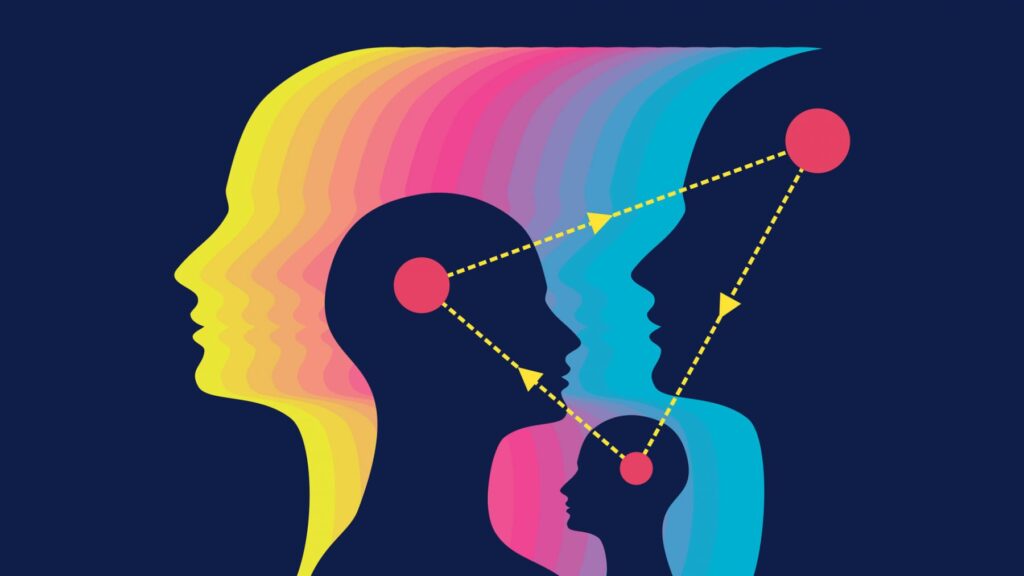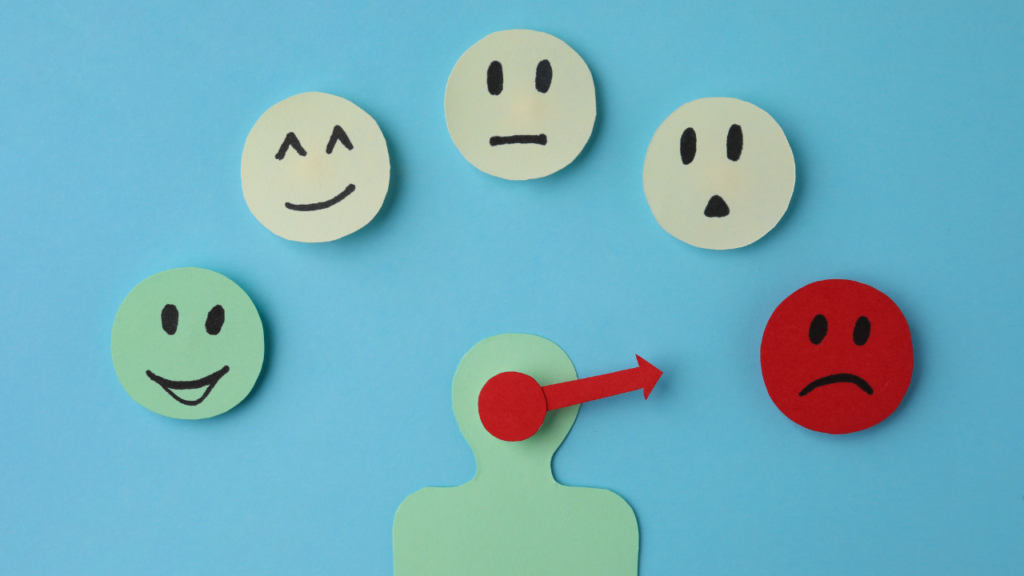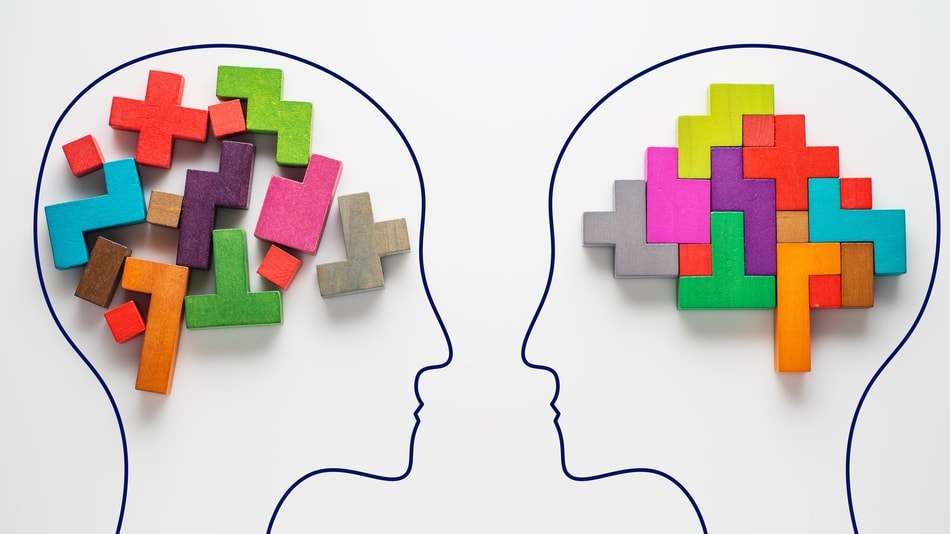
In today’s fast-paced world, many people find themselves battling overwhelming emotions while pursuing ambitious goals. The connection between our feelings and our ability to achieve personal and professional milestones is often misunderstood. Have you ever felt that your emotions block your progress or skew your decision-making? In this comprehensive article, we explore the realm of psychology and uncover proven strategies to understand and harness your emotions. By combining scientific insights, practical techniques, and real-life examples, we provide you with a roadmap to turn emotional turbulence into a powerful force for success. This article is your ultimate guide to mastering your inner self and creating a fulfilling life journey.
Understanding the Science Behind Emotions
Psychology offers a fascinating perspective to understand the complex world of human emotions. At its core, the study of emotions is intertwined with cognitive processes, where every feeling serves a biological and social purpose. Scientific research shows that our emotions follow specific patterns designed to protect, motivate, and connect us. Understanding these patterns not only demystifies our inner workings but also provides actionable insights to enhance our mental well-being.
Recent neuroscience studies have revealed the intricate network of the brain’s emotional centers, such as the amygdala and prefrontal cortex. These regions work together to process stress, joy, fear, and love, each playing a pivotal role in how we perceive challenges. By learning about these brain mechanisms, individuals can better understand why they react the way they do in emotionally charged situations. This knowledge is empowering and essential for anyone looking to gain control over their emotional responses.
Furthermore, emerging research indicates that social interactions and early life experiences significantly shape our emotional landscape. Factors such as family dynamics, cultural norms, and personal relationships influence how emotions manifest throughout life. By incorporating both biological and psychosocial perspectives, we can appreciate the complexity of emotions. Ultimately, harnessing this knowledge helps foster resilience and improves overall mental health, providing a solid foundation to navigate life’s ups and downs.
Strategies to Master Your Emotions
Mastering your emotions is a process based on self-awareness, regulation, and resilience. A proven method to start is through mindfulness techniques, which involve observing your thoughts and feelings without immediate reaction. Practices like meditation and deep breathing have been scientifically validated to reduce stress and enhance clarity. Mindfulness empowers individuals to pause before reacting impulsively, giving them the space to choose a more thoughtful response.
Another impactful strategy is cognitive reframing, a technique used in cognitive-behavioral therapy. This method challenges negative thought patterns and helps reinterpret emotional triggers. By changing the context, one can shift perspective and reduce anxiety. With time, this practice becomes a powerful form of mental conditioning, building a more resilient response to stress. Cognitive reframing highlights how our inner dialogue is fundamental in transforming obstacles into opportunities.
For example, journaling is a highly effective tool for self-reflection. Keeping a daily journal allows you to identify emotional patterns and triggers, promoting better self-management. Numerous studies confirm that individuals who write consistently experience clearer perspectives as well as improved moods. When these strategies become part of your daily routine, they lay the foundation for long-term emotional mastery.

Key Techniques
- Engage in daily mindfulness exercises to stay present in the moment.
- Practice deep breathing techniques during stressful situations.
- Utilize cognitive reframing to reassess negative thoughts.
- Maintain a regular journaling habit to reflect on your emotional experiences.
The Crucial Role of Emotions in Achieving Goals
Achieving goals is not only about planning and strategy; it is deeply influenced by our emotions. Emotions energize our efforts, driving us to succeed. Researchers have found that positive emotions like enthusiasm and hope are directly linked to increased productivity and creativity. Harnessing these feelings can turn setbacks into learning opportunities and boost your drive to succeed. Aligning emotions with goals is essential in bridging the gap between aspiration and achievement.
However, the emotional journey of setting goals can be a double-edged sword. While strong emotions can provide the necessary spark to get started, they may also derail progress if not managed properly. Learning to modulate these feelings is crucial to maintain focus over the long term. For instance, transforming anxiety into a motive for thorough preparation can lead to more effective planning and better outcomes.
In real-world scenarios, many high achievers credit their success to managing their emotional states deliberately. Techniques such as visualization and positive affirmations help maintain morale even during challenging times. These strategies are not mere self-help trends but are backed by solid psychological research. The key takeaway is that emotional intelligence plays a pivotal role in goal setting, allowing individuals to overcome challenges with a balanced perspective and stay committed to their long-term visions.
Benefits of Emotional Alignment
- Enhanced motivation through positive emotional states.
- Improved focus and decision-making during goal pursuit.
- Increased resilience in the face of setbacks.
- Boosted creativity and innovation when overcoming challenges.
Practical Techniques for Emotional Regulation and Goal Setting

Integrating practical techniques into your daily life is key to effective emotional regulation and goal setting. One of the most potent methods is to set realistic, incremental steps toward larger ambitions. Breaking big goals into manageable tasks reduces overwhelm and increases the likelihood of consistent progress. This gradual approach ensures that every small victory builds confidence and fosters positive emotional habits.
Another effective technique is to use SMART goals—objectives that are Specific, Measurable, Achievable, Relevant, and Time-bound. This framework not only provides a clear roadmap but also aligns your emotional energy with concrete outcomes. Tracking progress against well-defined targets naturally cultivates a sense of achievement, which in turn uplifts your mood and motivation. Celebrating these small wins creates a positive feedback loop that propels continuous success.
Moreover, combining physical activity with goal-oriented practices can greatly boost emotional well-being. Exercise releases endorphins, which help combat stress and improve mood. Imagine pairing a brisk walk or yoga session with a moment of reflection on your progress—this synergy enhances both mental clarity and physical resilience. By adopting such a holistic approach, you begin to understand that emotional regulation and goal achievement are integral parts of a balanced lifestyle.
Implementing SMART Goals
Start with a clear, concise objective that closely aligns with your values and aspirations. This connection motivates you to overcome challenges without losing sight of your goal.
Break your main objective into smaller, manageable steps. Celebrate each milestone with rewards that acknowledge your hard work and progress.
Physical Activity and Emotional Resilience
Incorporate regular physical activity into your routine. Even short bursts of exercise can have a significant positive impact on your emotional state.
Combine exercise with reflective practices, such as keeping a progress log or meditating on your achievements, to boost both physical and emotional endurance.

Integrating Psychological Insights into Daily Life
Applying the psychological insights discussed in this article can transform the way you face everyday challenges. It is essential to embrace a mindset that welcomes growth and change, viewing every experience as a learning opportunity. Recognizing the link between your emotional state and your actions is an empowering first step. Incorporating psychology into daily habits turns obstacles into opportunities and can significantly enhance your overall well-being.
Practices such as reflective meditation, goal visualization, and periodic self-assessments help embed these insights into your everyday life. Over time, these habits build an internal dialogue that is both constructive and motivating. Many individuals find that regularly engaging with psychological principles not only improves emotional regulation but also sharpens their problem-solving skills in both professional and personal spheres.
Furthermore, creating a supportive environment—be it at work, among family, or within community groups—amplifies these benefits. Sharing experiences and strategies with like-minded people reinforces positive habits and opens up new perspectives. This sense of community reminds us that psychological growth is a collective journey, enriched by shared wisdom and mutual encouragement. Psychological growth is best nurtured together as we work towards a more balanced and fulfilling life.
Daily Practices for Psychological Well-being
- Engage in daily self-reflection or meditation to monitor your emotional state.
- Visualize your goals and outline the steps needed to achieve them.
- Maintain connections with supportive groups or mentors.
- Keep a regular log of your progress to identify patterns and areas for improvement.
Content Additional
The insights presented in this article are based on up-to-date psychological research as of 2023, offering a robust foundation for anyone looking to effectively harness the power of their emotions. When traditional psychological theories are merged with modern practices, you not only experience personal improvement but also a deeper understanding of human behavior in our rapidly evolving world. Learning to navigate emotional landscapes with informed strategies is an ongoing journey that enhances both personal and professional life.
In today’s dynamic environment, psychological resilience is as valuable as technical skills. Employers increasingly recognize the importance of emotional intelligence, and personal growth depends on one’s ability to observe and regulate feelings. In educational settings, for example, teaching emotional regulation can lead to better academic performance and healthier relationships. As research continues to confirm the long-term benefits of early emotional education, more people are embracing these vital techniques.

Moreover, advances in technology are making psychological insights more accessible through various digital tools and applications designed to monitor and modulate emotional states. Data-driven feedback and virtual support groups are becoming integral parts of the emotional regulation toolkit. This fusion of modern technology with traditional wisdom is paving the way for a future where emotional mastery is within everyone’s reach, further empowering personal and professional success.
In summary, integrating psychological insights into our daily routines is the key to unlocking sustained success and well-being. By understanding how emotions shape our decisions and behaviors, and by putting into practice techniques for emotional regulation and goal-setting, we pave the way for a more empowered and balanced life. Remember, every step toward mastering your emotions is a step toward achieving your dreams. Embrace these secrets of psychology, transform challenges into stepping stones, and Your journey to self-mastery and goal achievement begins now.




